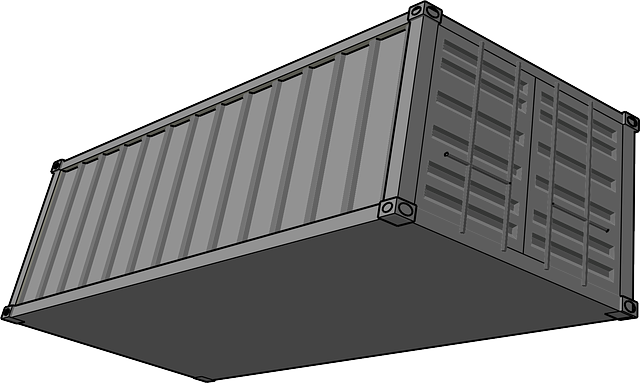In the dynamic freight transportation sector, understanding cargo-specific risks is vital for shippers and carriers. Each transport mode—air, sea, or land—has unique perils, from temperature changes damaging sensitive cargo to ship accidents and lengthy customs clearance in maritime shipping. This underscores the need for tailored freight protection policies addressing each stage of the supply chain. Proactive insurance solutions mitigate financial losses from damage, delay, or non-delivery, safeguarding operations and reputation in a competitive global market. Freight protection policies offer crucial risk management for diverse shipping requirements, providing advanced coverage, temperature control monitoring, and real-time tracking. Strategic initiatives like educational campaigns and industry partnerships increase awareness and accessibility of these effective policies.
In the dynamic landscape of global trade, understanding cargo-specific risks is paramount to ensure smooth freight transportation. This article explores the critical aspect of fostering awareness about these risks and the corresponding insurance solutions, with a focus on enhancing freight protection policies. We delve into common challenges, the role of insurance in hazard mitigation, diverse insurance types for unique scenarios, and strategies to improve access to comprehensive cargo insurance coverage. By understanding these elements, businesses can navigate the complexities of international shipping with greater confidence and security.
Understanding Cargo-Specific Risks: Common Challenges in Freight Transportation

In the dynamic landscape of freight transportation, understanding cargo-specific risks is paramount for shippers and carriers alike. Common challenges range from weather-related delays to port congestion, theft, and damage during transit. Each mode of transport—be it air, sea, or land—presents unique perils that can significantly impact the integrity and value of the goods being moved. For instance, while air freight offers speed, it’s vulnerable to sudden temperature fluctuations and pressure changes, which can harm sensitive cargo. Similarly, maritime shipping, though cost-effective for bulk goods, faces risks like ship accidents, port security threats, and lengthy customs clearance processes. These challenges underscore the need for tailored freight protection policies that address the specific vulnerabilities inherent in each stage of the supply chain.
By recognizing these common pitfalls, businesses can proactively seek out insurance solutions designed to mitigate financial losses stemming from cargo damage, delay, or non-delivery. Such freight protection policies not only safeguard against tangible losses but also help maintain the reputation and continuity of operations for both shippers and carriers in an increasingly competitive global market.
The Role of Insurance in Mitigating Hazards and Securing Freight Protection Policies

Insurance plays a pivotal role in mitigating risks associated with cargo transportation, providing much-needed security for businesses and shippers. By securing freight protection policies, companies can safeguard their goods against potential hazards that may arise during transit, including damage, theft, or loss. These policies offer peace of mind, ensuring that financial losses are minimized and potential disruptions to supply chains are mitigated.
Freight protection policies are tailored to cover a wide range of risks, from natural disasters like floods and storms to man-made incidents such as hijacking and vandalism. They provide coverage for the value of the cargo, offering compensation in case of non-delivery or damage. Such insurance solutions enable businesses to focus on their core operations, knowing that their freight is protected, thereby fostering a sense of trust and reliability in the logistics industry.
Types of Insurance Solutions for Different Freight Scenarios

In the dynamic landscape of cargo transportation, diverse freight scenarios necessitate tailored insurance solutions for comprehensive risk mitigation and peace of mind. One such solution is freight protection policies, designed to safeguard against unforeseen events that could disrupt or damage shipments during transit. These policies are particularly crucial for high-value goods, offering advanced coverage options like loss, theft, and physical damage.
Whether dealing with international shipping, hazardous materials transport, or time-sensitive deliveries, specialized insurance providers offer customized freight protection policies. For instance, in the case of delicate or perishable cargo, specific policies can include temperature control monitoring and real-time tracking to ensure optimal conditions throughout the supply chain. Such measures not only preserve product integrity but also provide tangible evidence for claims should any issues arise.
Strategies to Enhance Awareness and Access to Effective Cargo Insurance Coverage

To enhance awareness and access to effective cargo insurance coverage, several strategic initiatives can be employed. First, educational campaigns targeting shippers, carriers, and logistics providers can help demystify complex freight protection policies. These campaigns can utilize diverse media formats, including workshops, webinars, and informative articles, to simplify key concepts, benefits, and various policy options. By breaking down jargon and providing real-world examples, these efforts ensure that stakeholders understand the importance of insurance in mitigating risks associated with cargo transport.
Additionally, establishing partnerships between insurance providers and industry associations can facilitate broader access to tailored freight protection policies. These collaborations can result in customized insurance packages, discounted rates, and streamlined application processes. By leveraging collective resources, they can also create comprehensive resource hubs, providing up-to-date information on regulatory changes, market trends, and best practices related to cargo insurance. Such collaborative efforts empower businesses to make informed decisions regarding their freight protection strategies.
By understanding the unique risks associated with cargo transportation, businesses can effectively navigate potential hazards. The article highlights the critical role of insurance in mitigating these risks and offers a comprehensive overview of available solutions. From common challenges like damage, loss, and delays to specialized scenarios, various insurance types ensure freight protection policies tailored to specific needs. To enhance awareness, strategies focusing on education and accessibility are key, enabling businesses to secure robust cargo insurance coverage for their valuable goods.
